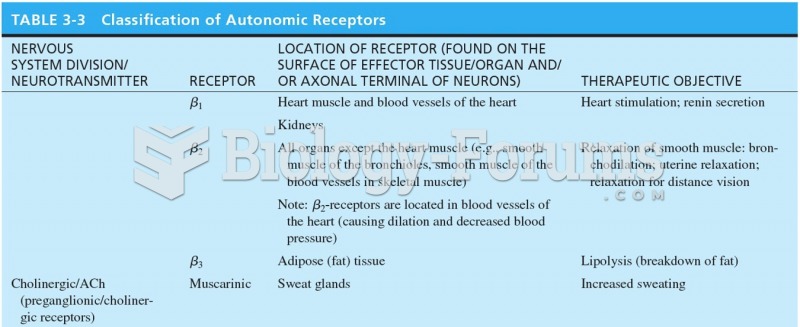|
|
|
Your heart beats over 36 million times a year.
Patients who have been on total parenteral nutrition for more than a few days may need to have foods gradually reintroduced to give the digestive tract time to start working again.
There are 20 feet of blood vessels in each square inch of human skin.
Every flu season is different, and even healthy people can get extremely sick from the flu, as well as spread it to others. The flu season can begin as early as October and last as late as May. Every person over six months of age should get an annual flu vaccine. The vaccine cannot cause you to get influenza, but in some seasons, may not be completely able to prevent you from acquiring influenza due to changes in causative viruses. The viruses in the flu shot are killed—there is no way they can give you the flu. Minor side effects include soreness, redness, or swelling where the shot was given. It is possible to develop a slight fever, and body aches, but these are simply signs that the body is responding to the vaccine and making itself ready to fight off the influenza virus should you come in contact with it.
Multiple experimental evidences have confirmed that at the molecular level, cancer is caused by lesions in cellular DNA.
 Control of Circadian Rhythms in Sleep and Waking by the SCN During the day cycle, the DMH inhibits t
Control of Circadian Rhythms in Sleep and Waking by the SCN During the day cycle, the DMH inhibits t
 A gasoline direct-injection (GDI) fuel rail and pump assembly with the electric pressure control ...
A gasoline direct-injection (GDI) fuel rail and pump assembly with the electric pressure control ...





